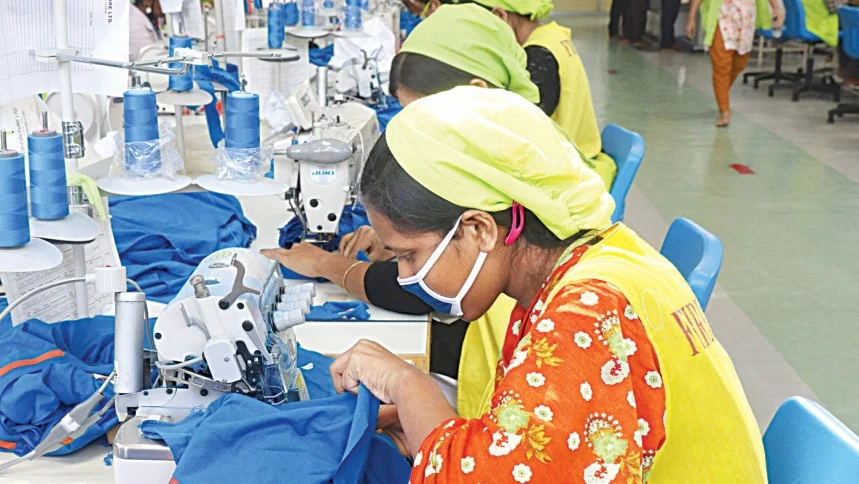Sexual harassment, wage discrimination plague women in RMG sector
Share on:

Around 83% of Bangladesh's revenue earnings come from the ready-made garments (RMG) sector. A total of 2.59 million workers are employed in this vital industry, of which 1.47 million—57%—are women.
This means that women constitute more than half of the total workforce in the RMG sector.
Despite their significant contribution, women workers remain the most vulnerable and at risk in this sector.
They are often deprived of opportunities due to the lack of enforcement of labor laws, facing challenges such as constant sexual harassment, wage discrimination, and limited access to benefits.
In this discussion, speakers demand that a safe and discrimination-free workplace is essential for the protection of female workers in garment factories. The system must be strengthened to take immediate action upon receipt of complaints on various issues, including sexual harassment.
The speakers said these things at an event titled "Learning Together: A Gender Justice Journey" organized by Shojag Coalition under the project "Promoting Gender Justice for Women Workers in the Readymade Garments Sector" in collaboration with the European Union in Dhaka on Sunday.
Laila Jasmin Banu, program manager, governance and human rights, European Union Delegation to Bangladesh; Sunzida Sultana, executive director and member of the Women Affairs Reform Commission; Rumana Khan, coordinator of the GBV Cluster at UNFPA; and Nuzhat Jabin, country director, ActionAid Bangladesh, were present at the event.
Additionally, RMG employers and buyers, representatives from NGOs and INGOs, UN officials, workers' rights-based Civil Society Organizations (CSOs), representatives from BGMEA and BKMEA, trade union members, and media attended the program and shared their experiences and concerns on the topic.
Taposh Barua, program manager, of Ethical Trading Limited, said: "In the RMG sector, there is a tendency to address grievances verbally. Factories often fail to document complaints, as they believe it could negatively affect their audit outcomes."
Anindita Ghosh, senior program officer, of Solidarity Center, said: "The lack of training for women in automation and the absence of childcare support are major reasons for declining women workers in the RMG factories."
Mohammad Maruf Hosain, deputy manager, of ActionAid, informed that: "The number of women in mid-level management positions in the RMG industry is very low. Most women are employed as sewing machine operators. Moreover, once a female worker in the RMG sector reaches the age of 35, she is often dismissed from the factory."
Sunzida Sultana, executive director, Kormojibi Nari, said: "The Bangladesh Labour Act, 2006, was amended and included the 2009 High Court Verdict (HCV) on sexual harassment in the workplace. Gender Platform Bangladesh has drafted and submitted a law on the prevention of gender-based violence (GBV) in workplaces. Additionally, the ILO has incorporated GBV into its Occupational Safety and Health guidelines, creating new opportunities to address GBV in workplaces."
Laila Jasmin Banu, program manager, Governance and Rights, European Commission, said: "The European Union in Bangladesh will continue its commitment to promote gender justice. Through projects funded by the EU, valuable lessons have been learned, and best practices will be applied to future EU projects."
Nuzhat Jabin, country director, Christian Aid, concluded: "A combined approach involving both factory and community interventions is essential to addressing GBV. Gender-diverse communities face numerous challenges that must also be addressed."

